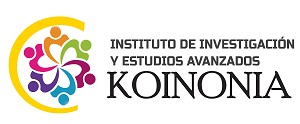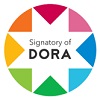El acceso al agua en Ecuador: Impacto y posibles soluciones
Resumen
El agua es un recurso de vital interés para cualquier país del mundo, ya que su control supone la permanencia de la especie humana en el planeta. En el caso de Ecuador esta es concebida como un derecho humano y como patrimonio estratégico de uso público, inalienable, imprescriptible, inembargable y esencial para la vida. Considerando este planteamiento se desarrolló el presente artículo con el objetivo de describir las implicaciones en términos de impacto y posibles soluciones en torno a la gestión del agua en Ecuador. A nivel metodológico corresponde a una investigación de tipo documental que se desarrolló a nivel descriptivo mediante un diseño bibliográfico. De manera conclusiva, se plantea que la gestión para el acceso al agua potable por parte del Estado ecuatoriano debe ser una acción que se ejecute con mayor contundencia, pues, todavía prevalece una tasa considerable de hogares sin acceso al agua potable por la red pública
Descargas
Citas
Ethic.es. (2019). 5 Artículos para entender el futuro del agua. [5 Articles to understand the future of wáter]. [Mensaje en Blog]. Recuperado de https://ethic.es/2019/03/cinco-articulos-clave-futuro-agua/
Fondo de las Naciones Unidas para la Infancia. (2017). Acceso a Agua, Saneamiento e Higiene. [Access to Water, Sanitation and Hygien]. Recuperado de https://acortar.link/D1rmWY
Fundación Futuro Latinoamericano. (2021). Futuro del Agua en el Ecuador. Perspectivas Presidenciales. [Future of Water in Ecuador. Presidential Perspectives]. Recuperado de https://acortar.link/adogb8
Martínez, A. (2019). La regulación del abastecimiento de agua en Ecuador. Evolución histórica y realidad actual. [Water supply regulation in Ecuador. Historical evolution and current reality]. Sostenibilidad: económica, social y ambiental, 1, 31-54. Recuperado de https://acortar.link/uF61Ss
Meyer, L. (2018). Adiós, petróleo: las próximas guerras serán por el agua. [Goodbye, oil: the next wars will be over wáter]. [Mensaje en Blog]. Recuperado de https://acortar.link/Ok8Lgs
Molina, A.; Pozo, M. y Serrano, J. (2018). Agua, saneamiento e higiene. Medición de los ODS en Ecuador. Instituto Nacional de Estadística y Censos (INEC) y Fondo de las Naciones Unidas para la Infancia (UNICEF). [Water, sanitation and hygiene. Measurement of the SDGs in Ecuador. National Institute of Statistics and Census (INEC) and United Nations Children's Fund (UNICEF)]. Recuperado de: https://acortar.link/wgTxkL
Mora, A. (2017). Derecho al agua y Buen Vivir: Desafíos para un Buen Gobierno. [Right to Water and Good Living: Challenges for Good Governance]. Recuperado de https://biblioteca.corteidh.or.cr/tablas/r37732.pdf
Núñez, W. (2018) El derecho fundamental al agua dentro del marco del servicio público de agua potable en el Ecuador. [The fundamental right to water within the framework of the public drinking water service in Ecuador]. [Trabajo de Maestría]. Universidad Andina Simón Bolívar, Quito; Ecuador. Recuperado de https://repositorio.uasb.edu.ec/handle/10644/6190
Organización de las Naciones Unidas. (2021). El agua es la base de la vida, pero está fuera del alcance de 2000 millones de personas. [Water is the basis of life, but out of reach for 2 billion people]. Recuperado de https://news.un.org/es/story/2021/03/1489832
Organización de las Naciones Unidas. (2018). El derecho al agua. Folleto informativo No 35. [The right to water. Information leaflet No 35]. Recuperado de https://acortar.link/j5dC4G
Organización de las Naciones Unidas. (2015). La Agenda para el Desarrollo Sostenible. [The Agenda for Sustainable Development]. Recuperado de https://www.un.org/sustainabledevelopment/es/development-agenda/
Organización de las Naciones Unidas. (2005). Cuestiones sustantivas que se plantean en la aplicación del pacto internacional de derechos económicos, sociales y culturales: Observación general Nº 15 (2002). [Substantive issues arising in the implementation of the International Covenant on Economic, Social and Cultural Rights: General Comment No. 15 (2002)]. Recuperado de https://acortar.link/kjGdEC
Organización Mundial de la Salud (2017). Servicios de agua potable gestionada de forma segura. Informe temático sobre el agua potable 2017. [Safely managed drinking water services. Drinking Water Thematic Report 2017]. Recuperado de https://washdata.org/report/jmp-2017-tr-smdw-es
Palella, S. y Martins, F. (2010). Metodología de la Investigación Cuantitativa. [Quantitative Research Methodology]. Recuperado de: https://acortar.link/JhB3B
Programa de las Naciones Unidas para el Desarrollo. (2012). Programa de Voluntarios de las Naciones Unidas (VNU). [United Nations Volunteers (UNV) Programme]. Recuperado de https://acortar.link/NEnfYh
Senderos, D. (2018). El ciclo integral del agua, una asignatura pendiente. [The integral water cycle, an unfinished business]. [Mensaje en Blog]. Recuperado de https://ethic.es/2018/11/ciclo-integral-agua/
Derechos de autor 2023 Claudia Virginia Cedeño Castillo, Zila Isabel Esteves-Fajardo

Esta obra está bajo licencia internacional Creative Commons Reconocimiento-NoComercial-CompartirIgual 4.0.
CC BY-NC-SA : Esta licencia permite a los reutilizadores distribuir, remezclar, adaptar y construir sobre el material en cualquier medio o formato solo con fines no comerciales, y solo siempre y cuando se dé la atribución al creador. Si remezcla, adapta o construye sobre el material, debe licenciar el material modificado bajo términos idénticos.
OAI-PMH URL: https://cienciamatriarevista.org.ve/index.php/cm/oai














